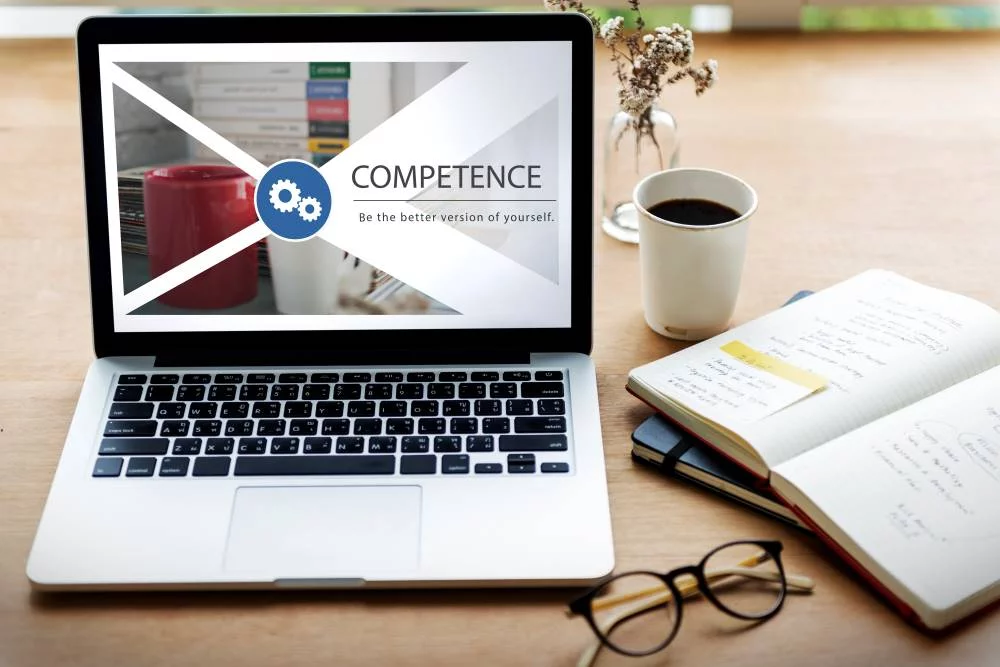
Why is competence measurement important in project management?
Many organisations have paid a heavy price for throwing their project managers into deep water without measuring their competencies, where their professionals drowned for lack of knowledge and experience, dooming important projects. This is precisely why the role of measuring and developing competences has been valued. Conscientious companies are not afraid to invest time and money in these key processes to ensure success. In this article we will now look at what is competency measurement? Why is it beneficial for companies? And what methods can be used to assess whether a project manager is capable of achieving project success?
What is a competency assessment?
Competence has several meanings. One interpretation is that it means authority, competence, competence. Another interpretation is that it can refer to competence, aptitude, expertise.
When we talk about measuring competences, we should use the latter interpretation in the context of projects.
This may include, for example, that the area:
- what knowledge and skills the professional has
- what cognitive and practical skills they have
- what his attitude is
- what his emotions are
- what are its values
Competence is therefore the sum of knowledge, skills, character and meta-learning abilities.
We have previously written about competence in more detail here
Why is it important to measure competences?
A project can be well thought out, well funded, we can work with the best experts and consultants, but without the right coordination we will not succeed. You will not be on schedule, you will not be on budget, you will have quality problems. The larger and more complex a project, the more critical this overall management function becomes. A project manager needs a broad skill set and a complex personality profile.
Acquiring and perfecting project management skills requires years of learning, practice and development. Acquiring and developing certain competencies is only possible in a project environment and requires continuous feedback for growth.
The aim of competence measurement and development is to support business and project success. On the one hand, companies need to assess new candidates, and on the other hand, the competencies of team members need to be tested from time to time.
They should check that:
- Are project management skills used effectively?
- Does the investment in training, coaching and development pay off in terms of performance?
What competences should a successful project manager have?
Project manager competences are a combination of knowledge, experience and personality traits.
Now let's look at what this looks like in practice!
I. Key areas of knowledge and skills
1. General leadership skills
This includes all the knowledge you might need in your job as a manager. Among other things:
- your negotiation skills
- a communication
- team building
- other human resource management skills, etc.
2. Knowledge of project management areas
By this we mean the tools used in projects, such as:
- managing the scope of the project
- meeting deadlines
- managing project costs, etc.
3. Industry-specific management skills
This includes:
- life cycle management
- product development methodologies
II. Areas of competence of proven experience
To understand this, it is important to know that years of experience are no guarantee of a good competence assessment.
What factors should be examined?
- results achieved so far
- hours spent on project management
- the size and complexity of the projects managed
- independent references
III. Aspects of personality
Among the competences, the personality domains play an important role. Basically, we can distinguish two important parts.
1. I can do it attitude
These personality traits include:
- self-confidence
- a proactive approach
- adaptability
- openness
- the enthusiasm
- the integrity
2. Team leadership skills
For example:
- communication skills
- the motivating force
- the ability to influence

Measuring competences in practice
Every organisation and every project is different, so it is necessary to measure the relevant competences accordingly.
Let's now review the basic competences and qualities needed to select the right project manager and to assess the professionals later on.
This is a good basis for finding the most qualified project managers for even the most critical projects.
Competency assessment according to the list can easily be combined with behavioural interviews.
Competence | What are we looking for? | The measurement of competences Methodology |
|---|---|---|
KNOWLEDGE, KNOW-HOW | It involves testing the candidate's professional ideas, methods, practices and vocabulary. In all cases, it is necessary for the prospective project manager to provide real examples from the past to demonstrate his/her experience. | |
GENERAL MANAGEMENT | ||
Leadership ability | ||
Sound judgement | Knowledge of the business purpose of the project and the ability to make decisions about it. | An outline of an imaginary scenario in which one of the three elements of time, money or quality would be compromised during the project. |
Vision, vision | The ability to transform an organisation's vision into a project vision. | The candidate should explain how the ultimate goal of the project fits into the organisation's business model and vision. |
Appropriate guidance | The ability to make the project a success despite tight schedules and obstacles. | Applicants must show where the project started, where it is currently at and where it is going. |
Coach or mentor team | Accurate knowledge of the strengths and weaknesses of the team.
Using the skills of team members to complement and support each other.
Providing continuous feedback to project participants and team members. | Applicants should describe how they will motivate their team and how they will liaise with other project participants. |
Problem and conflict management | The ability to recognise and overcome resistance.
Problem rather than solution focus. | The prospective project manager should describe the problem-solving models and stress-management techniques he or she uses, and provide examples to support this. |
Effective decision-making | Ability to identify the key issues and problems and select the best solution from the alternatives.
Can make timely decisions that meet business objectives. | Based on an imagined scenario, determine the candidate's approach to making decisions, whether he/she takes facts and opinions into account, presents options to the sponsor, documents decisions made and monitors implementation. |
Communication | Ability to communicate information on tasks, plans, schedules, strategies and organisational structure to project stakeholders. | Check the description of the communication plans used by the applicant. Does the candidate adapt the form and timing of communication to the target audience? Does the candidate confirm the accuracy of the information sent and received? Are follow-up questions asked? |
Trial | The ability to make win-win agreements. | Play an imaginary scenario to identify the candidate's negotiation method. Do you represent interests rather than positions? Is he seeking a preferential agreement? |
Team building | The ability to encourage and empower people to work together as a team to deliver a project. | Please give examples of team-building activities you have used in the past. Does the candidate share leadership responsibilities with the team? Does the candidate communicate the results of the team? |
PROJECT MANAGEMENT | Knowledge of basic project management processes, methodologies, tools and techniques and the ability to adapt them to the organisation. | Sample project outline to enable the candidate to demonstrate project management skills such as project planning, cost-benefit analysis, problem solving, risk management. |
INDUSTRY MANAGEMENT | High level of knowledge of applications used in the organisation's industry. Ability to align project management processes with the organisation's product lifecycle. | The candidate should explain and outline how he/she would adapt project management to the specific application. |
PROVEN EXPERIENCE | Applicants should provide concrete examples of their successes to date and how they have been recognised by stakeholders. | |
Project experience | The ability to manage and lead problematic teams and projects to success.
Ability to manage interactions between the client and the project team. | He will give examples of his previous experience. This should be followed up by contacting the persons given as references. |
PERSONAL CHARACTERISTICS | Test the candidate's behaviour in a project environment using scenarios, role-plays or management assessment. | |
Personality traits | You can adapt well to situations and manage everyone's expectations in the face of constant change.
Ability to say no.
Can remain calm under pressure.
Ability to take responsibility for failures. | Ask for examples of how commitments are kept, including promises made to colleagues. Role-play stressful situations. Pay attention to the language of the conversation, communication and mutual respect. |
Ability to lead team members | The ability to gain the trust and respect of stakeholders.
Ability to influence decisions necessary for the success of the project. | Use a scenario to determine how the candidate will interact with the project stakeholders. With whom and how will he communicate?
Will he remain credible regardless of who he is talking to?
How does he manage expectations? How well does he or she listen to others? |
In summary
The competency assessment helps to determine whether a prospective project manager - or one already working on a current project - has the combination of knowledge, experience and personality traits needed to achieve business success. By being able to select the right project manager for the project, organisations can minimise failure and maximise project return on investment.
If you also value continuous development of your competences, apply for our project management skills development training!

 Designabc
Designabc